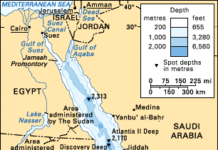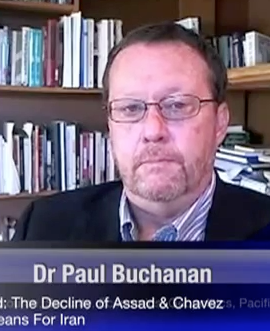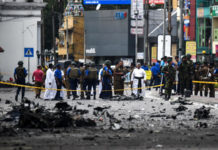Photo credit: Reuters.
Conceptual clarity is important in any context but especially when it comes to international relations, foreign policy and the initiation of conflict. Recent events in the Middle East have shown once again how clarity in the use of words is often deliberately obfuscated in pursuit of political agendas.
Unlike what is being reported in the corporate media and by some Western defense officials, the Israeli strike on Iran was not “pre-emptive.” “Pre-emptive” means “a sudden strike thwarting an imminent attack.” That is not the case here. Iran was not about to imminently attack Israel before Israel, and then the US, attacked it. What Israel did was a preventive attack designed to degrade Iran’s nuclear R&D/storage facilities, missile launcher sites and command and control capabilities. The IDF attack focused on preventing and delaying development of Iran’s nuclear strike capability before it reached operational status and was telegraphed in advance (remember the US pulling out embassy staff and military families from facilities in the Middle East in anticipation of an tit-for-tat Iranian response). Both suspected weapons-grade nuclear stores as well as launching platforms were on the target list, as were those responsible for them. The US then followed up with some preventive strikes of its own, using so-called “bunker buster” bombs to penetrate deep into suspected Iranian nuclear development and storage sites. The Iranians responded by lobbing some short and medium-range missiles in the direction of the main US base in Qatar.
Just like his response to October 7 with the ethnic cleansing of Gaza and expansion of illegal settlements in the West Bank, Netanyahu has seized his moment of opportunity because, quite frankly, he can. No one will stop him (certainly not the Iranians) and the US backs him, with most of the West tacitly supporting Israel with their silence or tepid responses to the conflict. This, I suspect, is due to Israel’s value as an intelligence partner of the West as much as any other reason.
The preventive nature and targets of the strikes may have helped moderate the Iranian response. On the other hand, killing the Revolutionary Guard Commander and Deputy Commander is a serious affront that will require a response in order for the Iranian regime to save face among its domestic audiences. So the escalation scenario is real, albeit not as bad as it could be. What is clear is that unlike preemptive attacks, the Israeli and US preventive attacks had no justification in the Laws of War (jus ad bellum) and were therefore illegal under International law. One might understand why the Israelis and US conducted the strikes and there is plenty of precedent for them, but that does not make them legal.
Deliberate conflation of the terms “pre-emptive” with “preventive” by security officials and media is either a product of conceptual ignorance or deliberate obfuscation in pursuit of legalistic white-washing of a blatant violation of international law. If the latter is true we know why they do it, but that does not mean that we have to accept they’re doing so.














